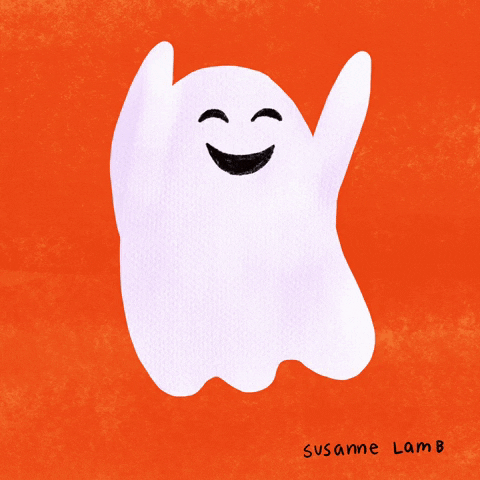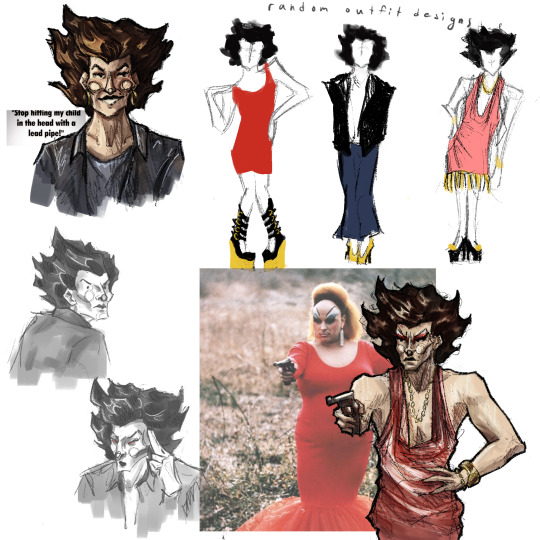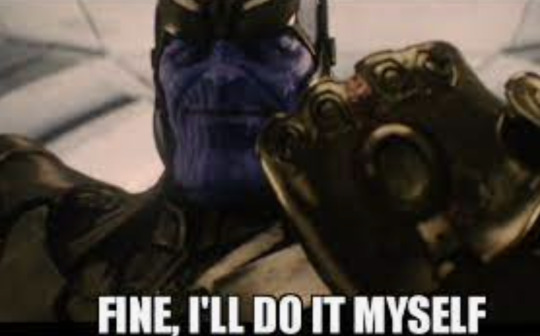#Tumblr screenwriters
Explore tagged Tumblr posts
Text

Most Effective Way For A Writer To Find A Manager - Peter Katz
#hollywood#career#entertainment industry#cinema#movies#screenwriting#writers#writing advice#entertainment jobs#scriptwriting#screenwriters on tumblr#writers life#tumblr writers#tumblr screenwriters
6 notes
·
View notes
Text
''what if my writing isn't good eno--'' what if it's a reflection of your soul. what if it has a place in this world. what if you write it anyway
#writeblr#screenwriting#writers on tumblr#writing#writing encouragement#writing motivation#writing positivity#writer problems
39K notes
·
View notes
Text
How do we write characters authentically?
Hello, my dear writer! I assume we've all wondered at the beginning of our writing journey, "How do I find my own writing style? How do I stand out, and how do I make my characters sound authentic?" This post is dedicated precisely to the latter question. How do we write characters authentically?
Observe Different Personalities: Observe people of different age groups, from various cultural backgrounds, and with diverse life experiences. Pay attention to their language, gestures, and behaviors to develop a broad understanding of human diversity.
Take Time for Character Development: Invest time in developing your characters, including their background, motivations, goals, strengths, and weaknesses. The better you know your characters, the more authentically you can portray them.
Utilize Realistic Settings: Place your characters in realistic environments and situations that are recognizable to your readers. Describe the details of their surroundings, such as landscapes, buildings, clothing, and everyday items, to create a vibrant backdrop for your story.
Be Open to Change and Development: Allow your characters room for growth and change. People evolve over time based on their experiences and decisions. Permit your characters to learn from their mistakes, gain new insights, and undergo development.
Everyday SituationsAn additional tip is to place your character in various small situations, even if they are a fantasy figure. For instance, have your character order coffee. What happens if they encounter a ghost? What are their feelings about Christmas? Accompany them while shopping. How do they react when meeting their greatest hero? Describe everyday scenarios that aren't part of your official story but are meant for you to better understand your character.

#writing#writeblr#writers on tumblr#writer stuff#creative writing#writers#writing advice#writblr#writers block#writing community#writing tips#words#screenwriting#playwriting#writingadvice#amwriting#scriptwriting#script#bookish#book blog#booklr#bookworm#books and reading
2K notes
·
View notes
Text
Who holds the power in your scene?
This is something we really explored during my time at film school, and is easier to see on the screen but still very applicable on the page. Essentially, in every scene there is one character who is holding the power—meaning they are driving the conversation, driving the action, they are in control because they are going after a goal, and if they are in power, are going to get the closest to achieving it. Every character should have some sort of goal going into every scene, and thus the power can and should shift between characters within the scene to create more interesting dynamics. So how do we do this?
1. Understand each character’s goal—and who is going to “win”
Each character comes into a scene with expectations that form their goal. Let’s do a breakup scene. Character A comes in with the expectation to go on a hike with their partner and have a good time. Their goal may start out as something simple like: “have a good time on this hike” or “avoid fighting with Character B��. Character B is going into this scene knowing they are going to breakup with character A, their goal is to literally just breakup with them.
If we know, as the author, that Character B is going to be successful, we know that this is their scene and they will ultimately hold the majority of the power. Vice-versa if Character A is successful in achieving their goal.
In knowing that, we can get into the actual mechanics of a power shift.
2. Character spacing and movement
Spacing and movement is the most obvious aspect in filmmaking, but may be forgotten on the page. In our example, I would place Character B ahead of Character A on the hike so that they are standing slightly above them on the incline. When they begin discussing their breakup, I would turn them around. Subconsciously, we know that B is “lording” over A, they have the high ground (har-har) and thus are the more imposing, powerful person.
Even the act of turning around would be a display of this power. So I would write it as,
B: Listen, I’ve been meaning to talk to you about something… I just don’t really think either of us are happy—I don’t think this is really working anymore. A: What are you saying? B stops walking, turning on their heel to face them. B: I’m saying I want to break up.
3. The Driver of Conversation
Seen a bit in the last section, whoever is driving the conversation, steering the topic and tone, holds the power. You may notice throughout dialogue that there tends to be a questioner and an answerer, or someone providing the action while the other(s) are reacting.
A: I thought we were trying to connect more. Isn’t that what this stupid hike is about? B: Well it’s not working. I’m sorry. I’m done trying.
However, a character can grapple for and shift the power by calling them out or otherwise steering the conversation in a way that they would like instead. At this point, A would likely have shifted their goal from “having a good time” to proving that they were right about some change they picked up on, or in another case, may be trying to convince them to not breakup. If you allow them to “win” for a portion of the scene, you can reverse the power.
A: This is because of that person you met at work isn’t it? How dare you try to pretend that it has anything to do with me. B: Hold on—this has nothing to do with her… A scoffed, stepping forward on the incline. A: You are such a liar. You have been since the day we met. I don’t know why I ever trusted you.
B: I didn’t lie about that. I swear.
And let’s reverse the scene back:
A: What is it then? What is this really about? B: We’re just too different! I’m sorry. B steps past A and starts walking back the way they came.
Power can shift because another character took it, but it can also shift by the character in power giving it up, either intentionally or unintentionally.
4. The leader of action
Otherwise, the person who directs the action; is winning the fight, points out directions or creates the plan, or otherwise is determining where the characters go next or what they do next, holds the power in the scene. A grapple for power doesn’t necessarily need to be verbal but could rather be two people going opposite directions and one of them relenting, for example. This one is more obvious because it’s very visual, but is still an important aspect to how characters “win” or “lose” their goals in a scene.
#writing#creative writing#writing community#writers#writing inspiration#screenwriting#filmmaking#books#writing advice#film#power in a scene#who holds the power in your scene#writing scenes#scene building#character building#writing tips#writing characters#fiction writing#novel writing#writblr#writerscommunity#writers of tumblr
188 notes
·
View notes
Text
I hope there is another homoerotic antagonism show coming soon because The Worst Of Evil destroyed me, The Devil Judge broke me bc they parted ways, Beyond Evil made me sad bc they parted ways, The Merciless killed me, D.P. also made me sad, can I please for the love of God have a show where the two main characters stay together until the end or do I have to learn Korean move to South Korea and become a screenwriter myself
#the worst of evil#beyond evil#the devil judge#the merciless#d.p.#strangers from hell#merciless evil devil from hell#I hope South Korean screenwriters use tumblr
1K notes
·
View notes
Text
I'll never be able to love someone like I loved you.
#writers on tumblr#love quotes#sad thoughts#i love him#poetry#i miss you#love#quotes#relationship#writing#spilled words#spilled tears#spilled thoughts#spilled ink#spilled poetry#spilled writing#write#writerscommunity#ao3 writer#amwriting#writeblr#writers community#screenwriting#writers and poets#creative writing#writers
209 notes
·
View notes
Text
Trying to be cool at parties as a writer: So, what's your favorite word? And does it have a known etymology?
#writeblr#writblr#writing#writer problems#writer community#writers on tumblr#writers and poets#writerscommunity#scriptwriting#screenwriting#script#creative writing#writing humor#writing memes#writing problems#writing process#writer#writers community#writing community#words#words words words#etymology#parties#talking to humans#she should be at the club#where she will make it weird for everyone involved
164 notes
·
View notes
Text
I wrote a spec script for Good Omens.
This past week, I was out to coffee with a friend of mine and we got to talking about writing (as we often do). She has more of a television/movie background while I have more of a theatre background.
In the midst of our discussion, she brought something called a "spec script". When asked what exactly that was, she explained (at least in terms of television), it's an unprompted and uncommissioned script written for an already established show. The purpose is to help demonstrate a writer's ability to match the style, format, and voice of a show they didn't create.
Immediately, I said, "That just sounds like fanfiction!"
(Obviously, it's not, but I enjoyed the parallels nonetheless.)
So, of course, I had to write a spec script. (Season 3, episode 1 of Good Omens.)
Let it be known that I did not do this in the hopes of joining the writing team as I know Neil has that MORE than covered. I just did it for fun, but I'm really proud of it and I hope you head on over to AO3 and take a look at it.
Probably too many swear words. Probably too much AziraCrow too quickly. Probably too blasphemous. Definitely wonky formatting.
But I had fun! And that's what fanfic is all about.
#archive of our own#ao3 author#ao3#screenwriting#crowly good omens#good omens fanfiction#ao3 fanfic#writers on tumblr#good omens#creative writing#fanfic#fanfiction#aziracrow#aziraphale#ineffable husbands#ineffable idiots#good omens 3#neil gaiman#terry pratchett#michael sheen#david tennant#miranda richardson#maggie service#quelin sepulveda#spec script#playwrights#playwright
205 notes
·
View notes
Text
design of Magnus O'Puss bc idc he's iconic

#im probably gonna make a whole other post abt this but the weird thing that sfth does so good#is that all of their plays have like different genres so it feels like theyre mimicking different screenwriters#and i think its so cool#do you guys get me#like for example BUS is obviously written by John Waters or Richard O'Brien#while snfthitw is written by Hayao Miyazaki or Henry Selick#i could go on for hours#sfth#shoot from the hip#art#artists on tumblr#digital art#my art#shoot impro#shoot from the hip improv#improv comedy#improv#sfth tom#sfth aj#sfth sam#sfth luke#sfthposting#sfth fanart#luke manning#alexander jeremy#tom mayo#sam russell#fanart#sfth bus
121 notes
·
View notes
Text
Me learning the original concept for Wish had Star as a Peter Pan/Genie-esque shapeshifter, he would be Asha's love interest, the king and queen would be a villainous couple, and that sounds a hundred times more interesting than what we actually got:
*opens Final Draft*

#creative inspiration#screenwriting#writing inspiration#wish#disney#disney wish#animation#we were robbed#fine i’ll do it myself#taking charge here#it deserves to exist in some form dangit#writers on tumblr#writing#disney animation#disney animated movies#disney animated films#disney movies#creative motivation
359 notes
·
View notes
Photo

9 Common Screenwriting Mistakes Beginners Make - Cody Smart via FilmCourage.com.
#writing#screenwriting#writing tips#writers on tumblr#will and grace#sons of anarcy#mayans#film and tv#scriptwriting#writing a screenplay#Tumblr writers#writing advice#writing 101#writes#creative writing#short story#storytelling#stories#Tumblr screenwriters
3 notes
·
View notes
Text
Your writing deserves love, kudos, recognition, and it is totally VALID to want those things, but a lack of it does not diminish nor determine your worth as a writer.
I know it's frustrating, but your stories are worth telling regardless. (+ sometimes a story pops off months after it was first published).
#writeblr#writers on tumblr#writing#writing advice#writing tips#screenwriting#writing encouragement#writing motivation#writing positivity#writer problems
1K notes
·
View notes
Text
How to Write on Final Draft (without it feeling so daunting)
It's incredibly difficult to open up a Final Draft document without feeling like you're literally writing your final draft, so here's a few features you can use your advantage!
1. Turn on dark mode
Dark mode makes it look like less of a script and more of an outline. Edit and rewrite in light mode, you will feel the difference.
2. Use speed view
Speed view gets rid of pages and page numbers and therefore you are only looking at the words you type.
3. Use focus mode
Focus mode removes the scenes, page numbers, and outlines you have at the top on the program while writing. Another way to forget about focusing on progress.
4. Make a messy beat board
Throw all your ideas onto the beat board, it should help make the document feel a bit more lived-in and less pristine.
Bonus:
5. Set a template with your formatting and use that to start every script you write
While a script format is very ridged, there are things you can do to personalize it. When you find those things, make them in a Final Draft doc (without actual writing) and save as your own template so you don't have to change all the elements every time.
#ronni august#ronni's writing tips#final draft#writing#writing tips#screenwriter#screenwriting#writing inspiration#writing ideas#writing inspo#writing advice#writing help#writing resources#how to write#writing tools#fiction writing#screenplay#writing motivation#writers of tumblr#♤ronniaugustwriting♤#196#r/196#r196
640 notes
·
View notes
Text
Making the Most out of your First Draft
As someone who used to write every first draft without planning and then use that to figure out characters and outlines, I have a lot of experience in first drafts that are incredibly helpful to forming an actual story, and drafts that don’t add much.
So here’s how to make the most out of your first draft:
1. Write what doesn’t make sense
One of the most helpful first drafts I ever wrote abandoned plotlines and started new ones as though they had existed all along like several times. It was also the longest draft I had ever written because I had packed so many ideas into it. The reason why this is helpful is because you can test out what a plot point will look like in the middle or even end of your story without having to go back to the same beginning again and again.
It doesn’t need to make sense, just try things out. Disappear characters who don’t work, add a best friend near the end that acts like they’ve been there the entire time, whatever idea you’re interested in you can try out without worrying too much about what makes sense or what you’d need in place to set it up. It's like literally stream of consciousness writing, and you're going to learn so much more about your world, plot, and characters than trying to make it make sense.
2. Write poorly
I spent a lot of that first draft having characters monologue to themselves or each other about their interests and problems and lives which allowed me to explore their backstories and voice even if that’s not something I would do in a final draft. I had the wackiest plot points to see how my characters would react, what would happen to the plot, and if I didn’t like it I would keep going like nothing had happened, I did a lot of yadda-yaddaing over worldbuilding and setting the scenes and making up things on the spot to see if they’d stick, skipping sometimes to the interesting stuff, or adding in a random scene just for fun.
It doesn’t have to be good. Even a little bit. You’re learning about your world and your characters and the story you want to tell, but you aren’t writing it yet. Allow it to be the worst thing you’ve ever written.
3. Make notes on what you like
As you go through and throw spaghetti at the wall (figuratively speaking), make notes on the things that stick. If you write a line of dialogue you really like, or a piece of backstory or even a vibe, make sure to make a note of it somewhere. This will help you narrow down your ideas to what you want to keep when you start writing your story. And if you’re like me and you want to outline or plan your subsequent drafts, these notes will be invaluable to start forming your planning.
Anything else I missed?
#writing#creative writing#writers#writing community#screenwriting#writing inspiration#books#filmmaking#film#writing advice#first draft#making the most out of your first draft#pantsing#pantser#writers on tumblr
434 notes
·
View notes
Text
I FINISHED MY FIRST DRAFT.
My brain has stopped forming words. Thank god it's done because editing is so much better than a blank page. The word count is not high but that's because it's not prose it's a script.
But let this be some motivation. I hope you all also finish whatever you're working on!
#writing#writeblr#writers on tumblr#writers#writer#writing community#creative writing#writerblr#writer things#writers block#writers life#writers and poets#writerscommunity#writer stuff#on writing#write#writing struggles#writing problems#writer problems#writing is hard#motivation#writing motivation#sincerelys#screenwriting#scriptwriting
93 notes
·
View notes
Text
Well, well, well if it isn't that placeholder plot point I put in the outline while I was sleep deprived. I knew we'd meet again one day
#writeblr#writblr#writing#writer problems#writer community#writers on tumblr#writers and poets#writerscommunity#creative writing#writing humor#writing memes#writing problems#writing process#writer#writers community#writing community#writing advice#outlines#outlining#screenplay#script#screenwriting#scriptwriting
75 notes
·
View notes